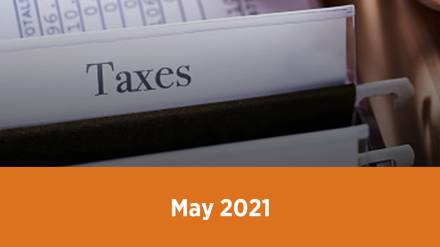Monthly requirements
If your church or organization reported withheld taxes of $50,000 or less during the most recent lookback period (for 2021 the lookback period is July 1, 2019, through June 30, 2020), then withheld payroll taxes are deposited monthly.
Monthly deposits are due by the 15th day of the following month. Note, however, that if withheld taxes are less than $2,500 at the end of any calendar quarter (March 31, June 30, September 30, or December 31), the church need not deposit the taxes.
Instead, it can pay the total withheld taxes directly to the IRS with its quarterly Form 941. Withheld taxes include federal income taxes withheld from employee wages, the employee’s share of Social Security and Medicare taxes (7.65 percent of wages), and the employer’s share of Social Security and Medicare taxes (an additional 7.65 percent of employee wages).
Semiweekly requirements
If your church or organization reported withheld taxes of more than $50,000 during the most recent lookback period (for 2021 the lookback period is July 1, 2019, through June 30, 2020), then the withheld payroll taxes are deposited semiweekly.
This means that for paydays falling on Wednesday, Thursday, or Friday, the payroll taxes must be deposited on or by the following Wednesday. For all other paydays, the payroll taxes must be deposited on the Friday following the payday.
Note further that large employers having withheld taxes of $100,000 or more at the end of any day must deposit the taxes by the next banking day. The deposit days are based on the timing of the employer’s payroll. Withheld taxes include federal income taxes withheld from employee wages, the employee’s share of Social Security and Medicare taxes (7.65 percent of wages), and the employer’s share of Social Security and Medicare taxes (an additional 7.65 percent of employee wages).
May 10, 2021: Employer’s quarterly federal tax return—Form 941
Churches having nonminister employees (or one or more ministers who report their federal income taxes as employees and who have elected voluntary withholding) may file their employer’s quarterly federal tax return (Form 941) by this date instead of April 30 if all taxes for the first calendar quarter have been deposited in full and on time.
May 17, 2021: Tax returns, individual contributions, and various forms
Individual tax returns—Form 1040
Federal income tax and self-employment tax returns by individuals for calendar year 2020 are due by this date. The federal tax filing deadline postponement to May 17, 2021, only applies to individual federal income tax returns (including tax on self-employment income), not state tax payments or deposits or payments of any other type of federal tax. Taxpayers also will need to file income tax returns in 42 states plus the District of Columbia.
State filing and payment deadlines vary and are not always the same as the federal filing deadline. The IRS urges taxpayers to check with their state tax agency for details.
Individual contributions
In extending the deadline to file Form 1040 returns to May 17, the IRS is automatically postponing to the same date the time for individuals to make 2020 contributions to their individual retirement arrangements (IRAs and Roth IRAs), health savings accounts (HSAs), Archer Medical Savings Accounts (Archer MSAs), and Coverdell education savings accounts (Coverdell ESAs).
This postponement also automatically postpones to May 17, 2021, the time for reporting and payment of the 10 percent additional tax on amounts includible in gross income from 2020 distributions from IRAs or workplace-based retirement plans.
Information returns—Form 990
An annual information return (Form 990) for tax-exempt organizations is due by this date for 2020. Form 990 summarizes revenue, expenses, and services rendered. Organizations exempt from federal income tax under section 501(c)(3) of the Internal Revenue Code must report additional information on Schedule A.
Note. Churches, conventions and associations of churches, “integrated auxiliaries” of churches, and church-affiliated elementary and secondary schools are among the organizations that are exempt from this reporting requirement. Organizations not exempt from this reporting requirement must file the Form 990 if they normally have annual gross receipts of $50,000 or more.
Unrelated business income tax return—Form 990-T
An unrelated business income tax return (Form 990-T) must be filed by this date by churches and any other organization exempt from federal income tax that had gross income from an unrelated trade or business of $1,000 or more in 2020.
Certificate of racial nondiscrimination—Form 5578
Annual certification (for calendar year 2020) of racial nondiscrimination by a private school exempt from federal income tax (Form 5578) must be filed by this date by schools that operate on a calendar-year basis.
Fiscal year schools must file the form by the 15th day of the fifth month following the end of their fiscal year. This form must be filed by preschools, primary and secondary schools, and colleges, whether operated as a separate legal entity or by a church.
If an organization is required to file Form 990 (Return of Organization Exempt From Income Tax), or Form 990-EZ (Short Form Return of Organization Exempt From Income Tax), the certification must be made on Schedule E (Form 990 or 990-EZ), Schools, rather than on this form.






